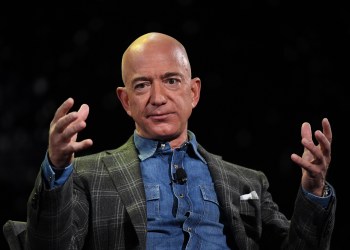Income gap widening rapidly
TEXT OF STORY
Kai Ryssdal: President Obama made the rounds of Parma, Ohio today talking economy. The White House and congressional Republicans are arguing over — well, they’re arguing over many things, to be honest with you. Today, it was whether to end the Bush tax cuts, those are the ones geared mostly toward Americans earning more than $250,000 dollars a year. The figure you hear is that that’s about 3 percent of the country, and a quarter million dollars is a lot of money. But the tax debate, and maybe the tax structure itself, doesn’t capture how rich a small slice of that 3 percent group really is.
Our senior business correspondent Bob Moon reports.
Bob Moon: It used to be Americans had a clearer idea of what it was to be rich.
Theme song from “The Donna Reed Show”
In the 1950s, the wealthiest Americans paid taxes of up to 90 cents on the dollar. But historians say the gap back then, between rich and poor, was smaller.
At the American Enterprise Institute, economic policies director Kevin Hassett says the rich started pulling further ahead in the 1970s, and recently, that’s accelerated rapidly.
Kevin Hassett: Income distribution got much more skewed over the last decade towards the top.
By some estimates, in the five years leading up to the recession, the incomes of the top 1 percent of Americans grew almost 10 times faster than everyone else — accounting for the bulk of the nation’s increased wealth.
Stephen Rose is a labor economist at Georgetown University. He says the income tax system hasn’t changed while that wealth shifted, and many wage-earners that Uncle Sam classifies as rich pay the same high tax margins as the super-rich.
Stephen Rose: Income taxes are somewhat targeted for the upper middle-class, and less targeted for the super-elite.
Rose says there’s been no groundswell as yet to create a higher tax rate for those Americans. But a Quinnipiac University poll out this year did find strong support — including among Republicans — for a tax on millionaires. If that happened, Rose says the richest of the rich would still be better off than they were not so long ago.
Rose: As recently as the Reagan era, the tax rate on people who made the equivalent of a million dollars a year was much higher than it is today. So we really would only be going back.
Rose says defining who’s rich, though, isn’t an issue for economists, as much as it is a political challenge.
I’m Bob Moon for Marketplace.
There’s a lot happening in the world. Through it all, Marketplace is here for you.
You rely on Marketplace to break down the world’s events and tell you how it affects you in a fact-based, approachable way. We rely on your financial support to keep making that possible.
Your donation today powers the independent journalism that you rely on. For just $5/month, you can help sustain Marketplace so we can keep reporting on the things that matter to you.


















